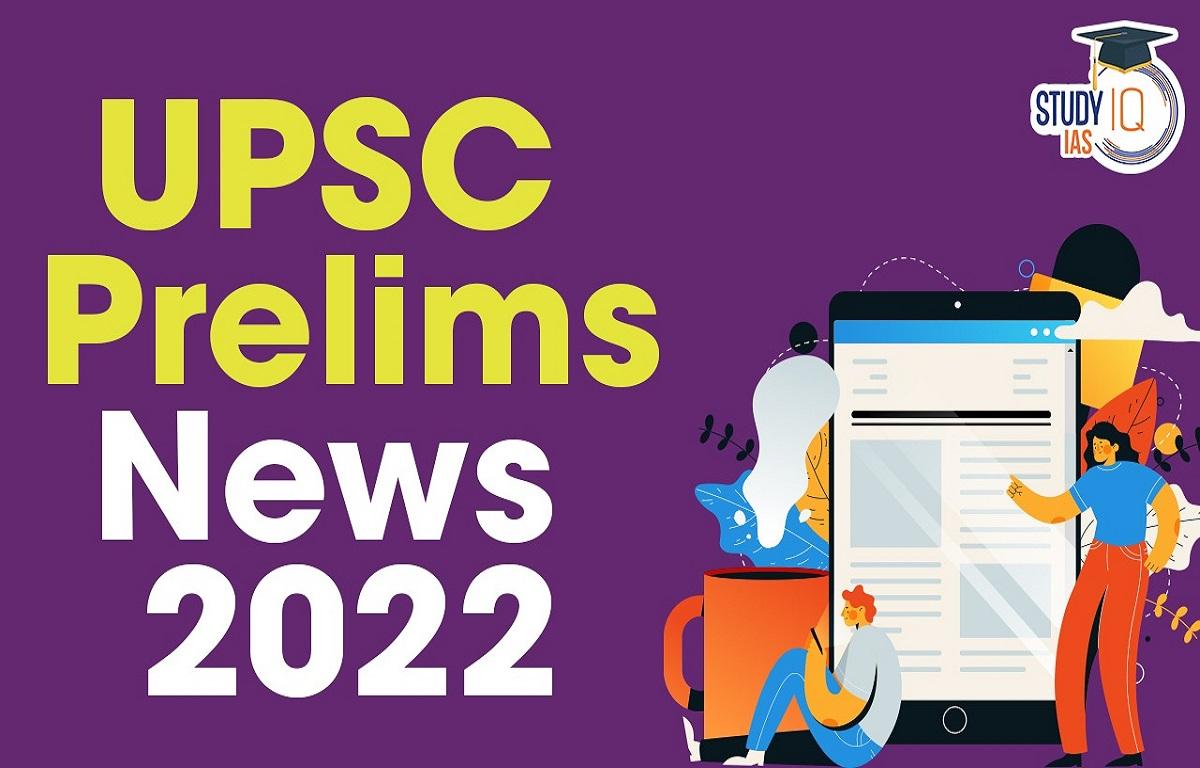UPSC Prelims News of 7 December 2022
OpenAI ChatGPT
Context: OpenAI company has introduced a new chatbot called ChatGPT.
About ChatGPT:
- ChatGPT is a ‘conversational’ AI and is designed to answer queries just like a human.
- It can also answer “follow-up questions”, and can also admit its mistakes, challenge incorrect information, and reject inappropriate requests.
- ChatGPT is based on the company’s GPT 3.5 series of language learning models (LLM). GPT (Generative Pre-trained Transformer 3) is a kind of computer language model that relies on deep learning techniques to produce human-like text based on inputs.
- Working: The Chatbot has been trained using Reinforcement Learning from Human Feedback (RLHF). This allows it to predict what will come next.
- Development: The initial model was trained using human AI trainers. These trainers provided conversations in which the AI Chatbot played both sides—the user and an AI assistant.
- The AI trainers were given access to model-written suggestions to help them compose their responses.
- Applications: The chatbot can compose basic emails, party planning lists, CVs, college essays and also solve math equations. It can also be used to write computer code.
- Drawbacks: The chatbot may generate incorrect information, and create “biased content.” The chatbot has limited knowledge of the world after 2021.
- ChatGPT provides grammatically correct responses but these lack context and substance.
UPSC Prelims News 6 December 2022
Print and Digital Media Association (PADMA)
Context: Print and Digital Media Association (PADMA) has been approved by the government as a self-regulatory body for publishers of news and current affairs across the country.
About PADMA:
- The organisation will have 47 digital news publishers on board and will look at grievances related to digital media news content on their platforms.
- PADMA shall perform functions provided in the sub rules (4) and (5) of rule 12 for the purpose of redressing grievances related to the code of ethics under the rules.
- The body will make sure that the member publishers adhere to the provisions of the rules, including furnishing the requisite information under rule 18.
- Functions under Rule 12 of the Information Technology (Intermediary Guidelines and Digital Media Ethics Code) Rules, 2021:
- Oversee and ensure adherence by the publisher to the code of ethics
- Provide guidance to publishers on issues of the code of ethics
- Address grievances that have not been resolved by publishers within 15 days
- Hear appeals filed by the complainant against the decision of publishers
- Issue such guidance or advisories to publishers for ensuring compliance to the code of ethics
Self Regulatory Body:
- It is a non-governmental organisation that establishes rules and standards relating to the conduct of entities in the industry in order to protect the customer and promote ethics, equality, and professionalism.
Paris Club
Context: Paris Club creditor nations are proposing a 10-year moratorium on Sri Lankan debt and another 15 years of debt restructuring.
About Paris Club
- It is a group of officials from 22 countries who find sustainable solutions for challenges faced by debtor countries.
- It has 22 permanent members, including most of the western European and Scandinavian nations, the United States, the United Kingdom, and Japan.
- The group is organized around the principles that each debtor nation be treated case by case, with consensus, conditionality, solidarity, and comparability of treatment.
About Sri Lanka Debt
- Sri Lanka had defaulted on its 51 billion dollar external debt in the midst of spiralling political and economic crisis.
- Sri Lanka government public debt has gone up from 115.3 per of the GDP in end-2021 to 143.7 per cent of the GDP in end June 2022.
- During 2022, the debt has increased further due to foreign exchange depreciation, deep recession and fiscal deficit with no signs of early revival.
- India Contribution: Sri Lanka owes some USD 800 million in structured debt to India.
- India has provided emergency aid to the tune of four billion dollars to the Island nation.
Jagadish Chandra Bose
Context: The Ministry of Culture has organized an international conference on the contributions of “J C Bose: A Satyagrahi Scientist” on his 164th birth anniversary.

About Jagadish Chandra Bose:
- Sir Jagadish Chandra Bose was a biologist, physicist, botanist and an early writer of science fiction.
- Important contributions:
- He discovered wireless communication and was named the Father of Radio Science by the Institute of Electrical and Electronics Engineering.
- He pioneered the investigation of radio and microwave optics, made significant contributions to plant science, and laid the foundations of experimental science in the Indian subcontinent.
- Bose is considered the father of Bengali science fiction. A crater on the moon has been named in his honour.
- He also invented the Cresco graph, a device for measuring the growth of plants.
- He founded Bose Institute, a premier research institute of India and also one of its oldest. Established in 1917, the Institute was the first interdisciplinary research centre in Asia.
- Important books: Response in the Living and Non-Living (1902) and The Nervous Mechanism of Plants (1926).





















 WhatsApp
WhatsApp